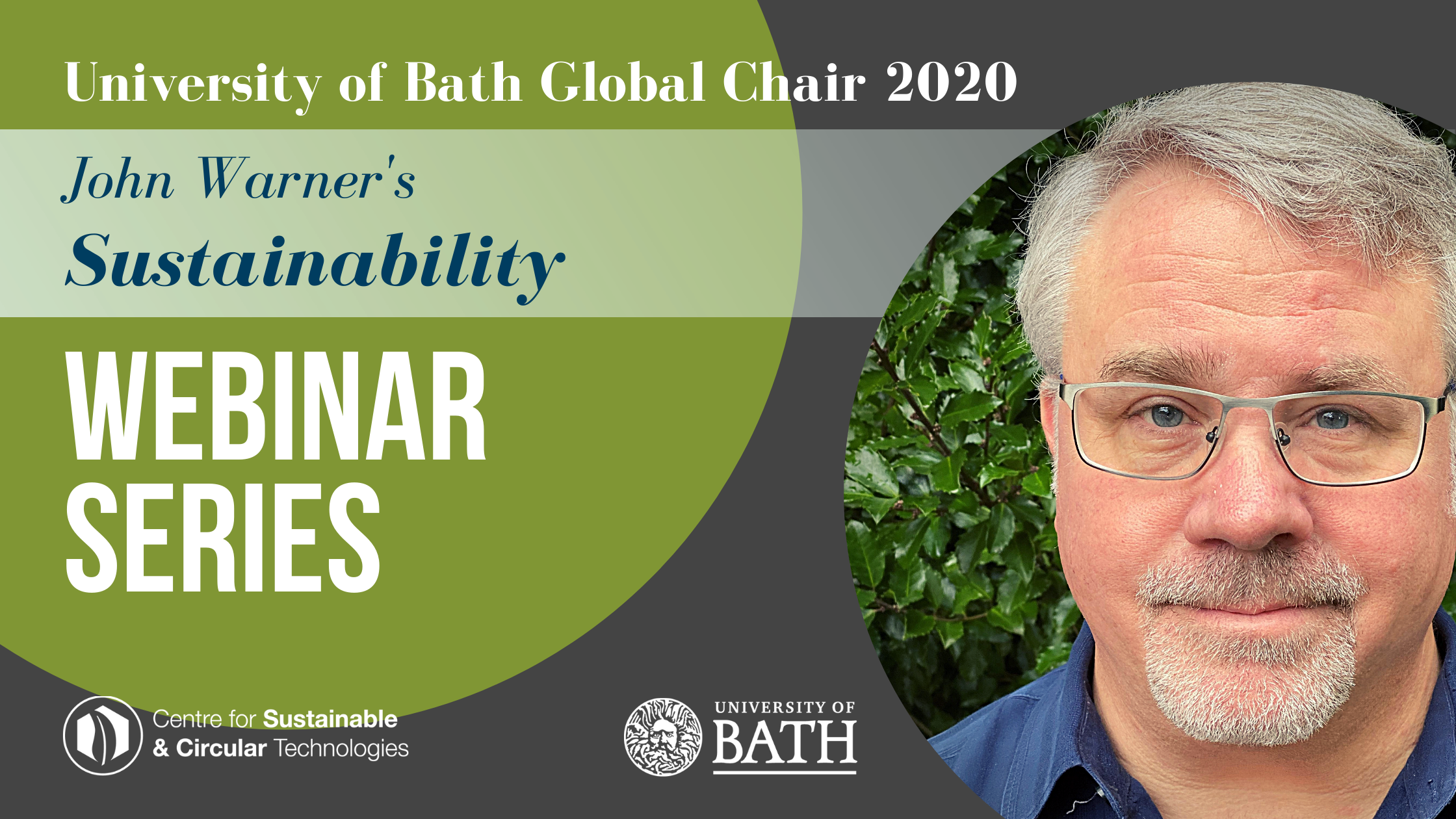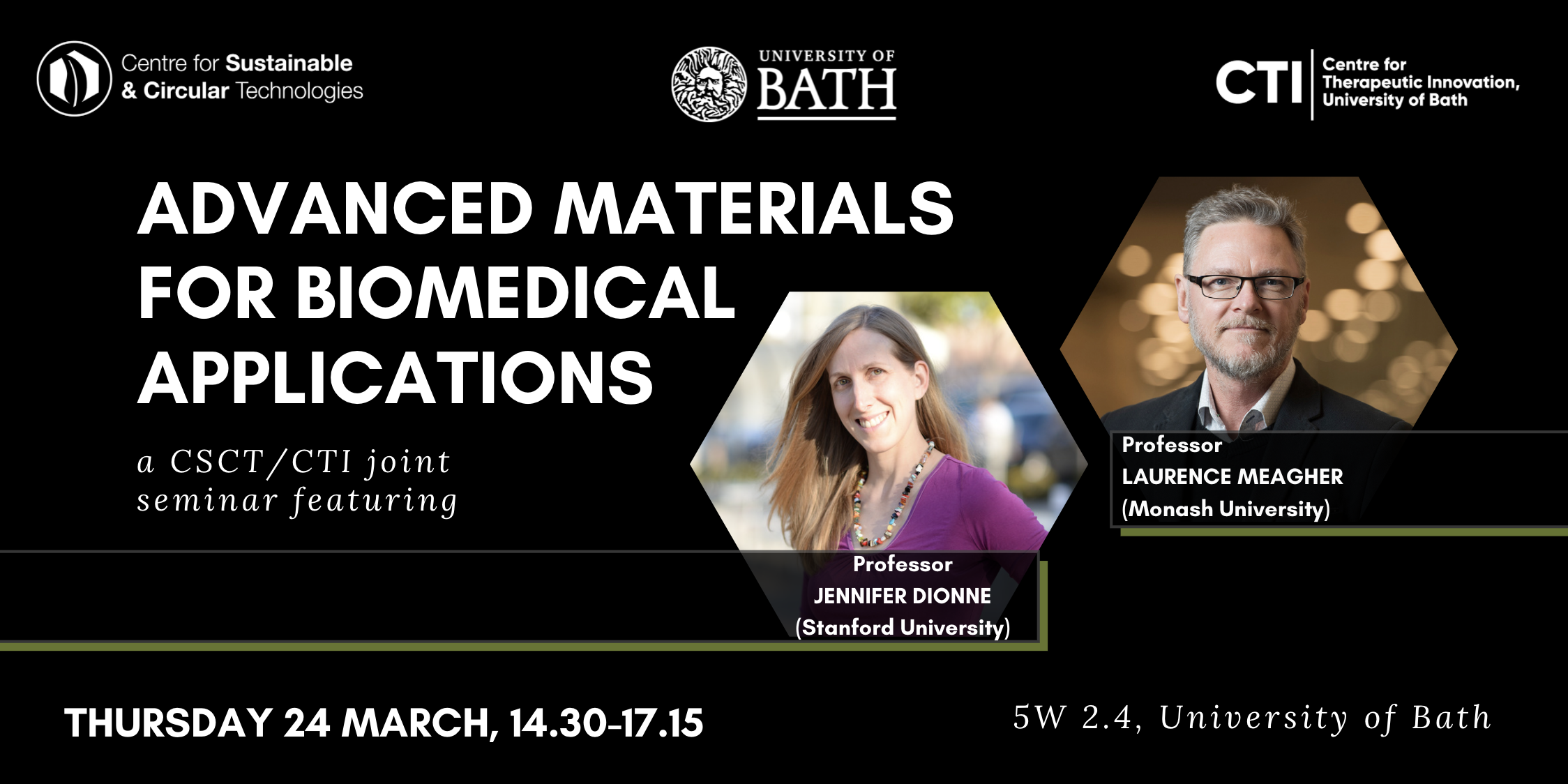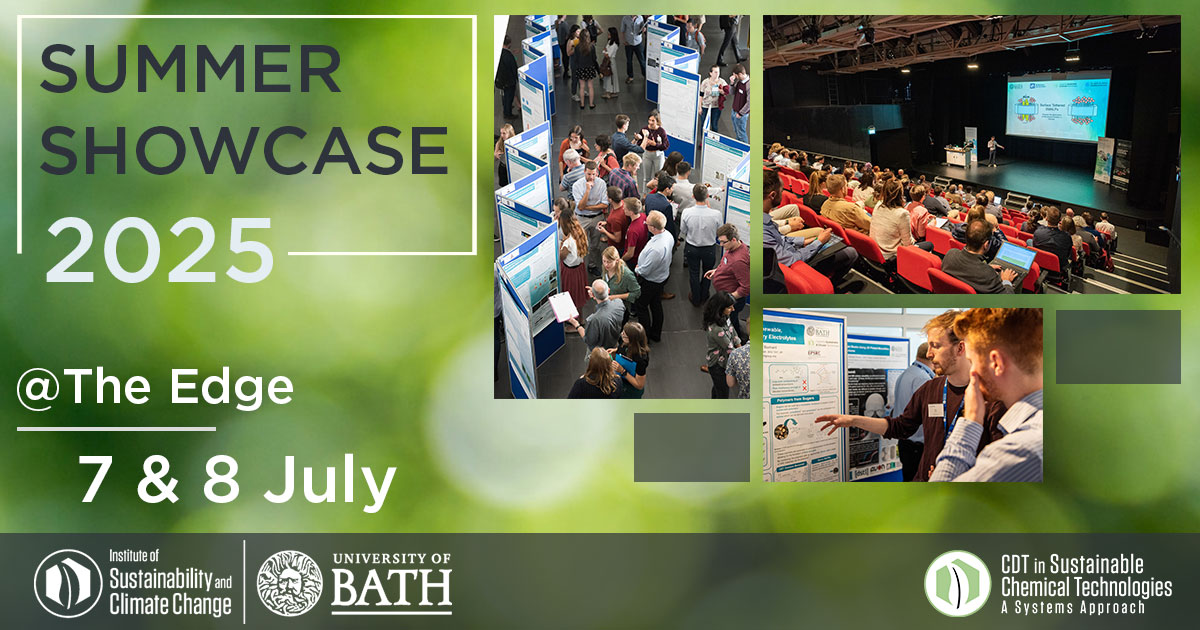
John Warner’s Sustainability Webinar Series
The Centre for Sustainable and Circular Technologies (University of Bath) proudly presents this series of online seminars by Professor John Warner (Monash University & Warner Babcock Institute), 2020/2021 University of Bath Global Chair and Founder of Green Chemistry.
Dates & Times
#1 Nature’s Mechanism – the Circular Economy and Plastics in the Environment
When: 15 October 2020, 13.00-14.30 BST
Learning outcomes: Describes how green chemistry fits in with other fields like biomimicry and the circular economy, and its relationship with issues like climate change and plastics in the environment.
- How can chemists improve their craft by better understanding nature?
- Why is chemistry critical to achieving the goals of the circular economy?
- What are some examples where molecular mechanisms from nature have been applied to real-world technologies?
#2 Introduction to Green Chemistry – the 12 Principles in Real-World Examples
When: 19 November 2020, 13.00-14.30 GMT
Learning outcomes: Provides a working introduction to the field of green chemistry and the 12 principles with illustrative examples of commercialized technologies.
- What is Green Chemistry and what are its principles?
- How do corporations use green chemistry to achieve goals of performance and cost?
- What are some real-world examples of Green Chemistry?
#3 Society’s Perspective, the UN SDGs and a Future View of Chemicals Policy
When: 21 January 2021, 13.00-14.30 GMT
Learning outcomes: Provides a lens to the view consumers, NGOs and government agencies relate Green Chemistry to industry and consumer products.
- How do non-chemists view the field of chemistry?
- How does chemistry apply to all 17 of the UN SDGs?
- How can chemists help improve global chemicals policies?
#4 R&D and Design – Case Studies and Innovation
When: 18 February 2021, 13.00-14.00 GMT
Learning outcomes: Discusses the role Green Chemistry plays in creativity and invention at the R&D and product design stage.
- What are the elements of innovation and how can they enhance creativity?
- What are some examples of early-stage research being translated into commercial applications?
- How to discover the commonality of molecular mechanisms across seemingly unrelated fields of science?
#5 Introduction to Mechanistic Toxicology
When: 18 March 2021, 13.00-14.30 GMT
Learning outcomes: Gives an overview of the fields of toxicology and environmental health sciences, and a somewhat non-technical foundation of general concepts.
- What are the basic concepts of mechanistic toxicology to help me better understand related literature?
- How can I use knowledge from the fields of toxicology and environmental health sciences to be a better chemist?
- How do I make the chemistry I am designing safer for humans and the environment?
#6 Q&A and Open Forum Discussion
When: 25 May 2021, 13.00-14.00 BST
About John C. Warner, PhD, FRSC, FACS, FRACI
John C. Warner is the 2020/2021 Global Chair hosted within the Centre for Sustainable and Circular Technologies (CSCT) at the University of Bath. John is currently a distinguished research fellow at the Zymergen Corporation, where he is helping to design and create commercial technologies inspired by nature and consistent with the principles of green chemistry. With nearly 300 patents, he has invented solutions for dozens of multinational corporations. His inventions have also served as the basis for several new companies. Examples include Collaborative Medicinal Development (ALS therapy), Hairprint (hair colour restoration), Collaborative Aggregates (asphalt warm mix rejuvenators), Ambient Photonics (lowlight indoor photovoltaic devices for IoT and BIPV).
He is one of the co-founders of the field of green chemistry, co-authoring the defining text and articulating the 12 principles of green chemistry with Paul Anastas. John has over 100 publications providing foundational work in the fields of noncovalent derivatization, polymer photochemistry, metal oxide semiconductors and synthetic organic chemistry. He has received prestigious awards as an academic (PAESMEM – President G. W. Bush & NSF, 2004), industrial chemist (Perkin Medal – Society of Chemical Industry, 2014), inventor (Lemelson Ambassadorship – Lemelson Foundation & AAAS) and for governmental chemicals policy (Reinventing Government National Performance Review – Vice President A. Gore & EPA, 1997). He received the American Institute of Chemistry’s Northeast Division’s Distinguished Chemist of the Year for 2002 and the Council of Science Society President’s 2008 Leadership award. Warner was named by ICI Services as one of the most influential people impacting the global chemical industries. In 2011, he was elected a Fellow of the American Chemical Society and named one of “25 Visionaries Changing the World” by Utne Reader. He serves as Distinguished Professor of Green Chemistry at Monash University in Australia. In 2017, the German Ministry of Economic Affairs and The Technical University of Berlin announced the naming of “The John Warner Center for Green Chemistry Start-Ups” in his honour.
John received his BS in Chemistry from UMASS Boston, and his PhD in Chemistry from Princeton University. After working at the Polaroid Corporation for nearly a decade, he then served as tenured full professor at UMASS Boston and Lowell (Chemistry and Plastics Engineering). In 2007, he founded the Warner Babcock Institute for Green Chemistry –a research organization developing green chemistry technologies– with Jim Babcock, and Beyond Benign –a non-profit dedicated to sustainability and green chemistry education– with Amy Cannon. He now advises several international organizations and in 2020 began working with the Zymergen Corporation.
The John Warner’s Sustainability Webinars are co-sponsored by SETsquared, the global no.1 business incubator and enterprise partnership between the universities of Bath, Bristol, Exeter, Southampton and Surrey.








